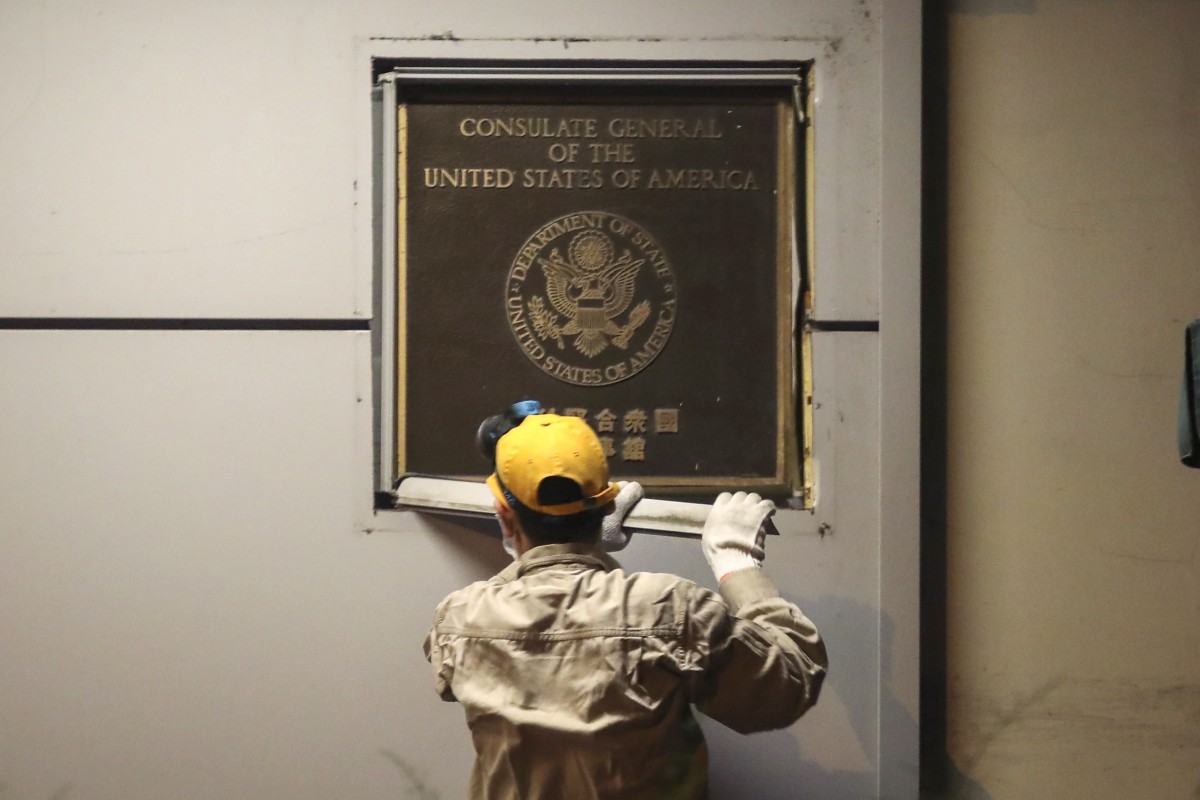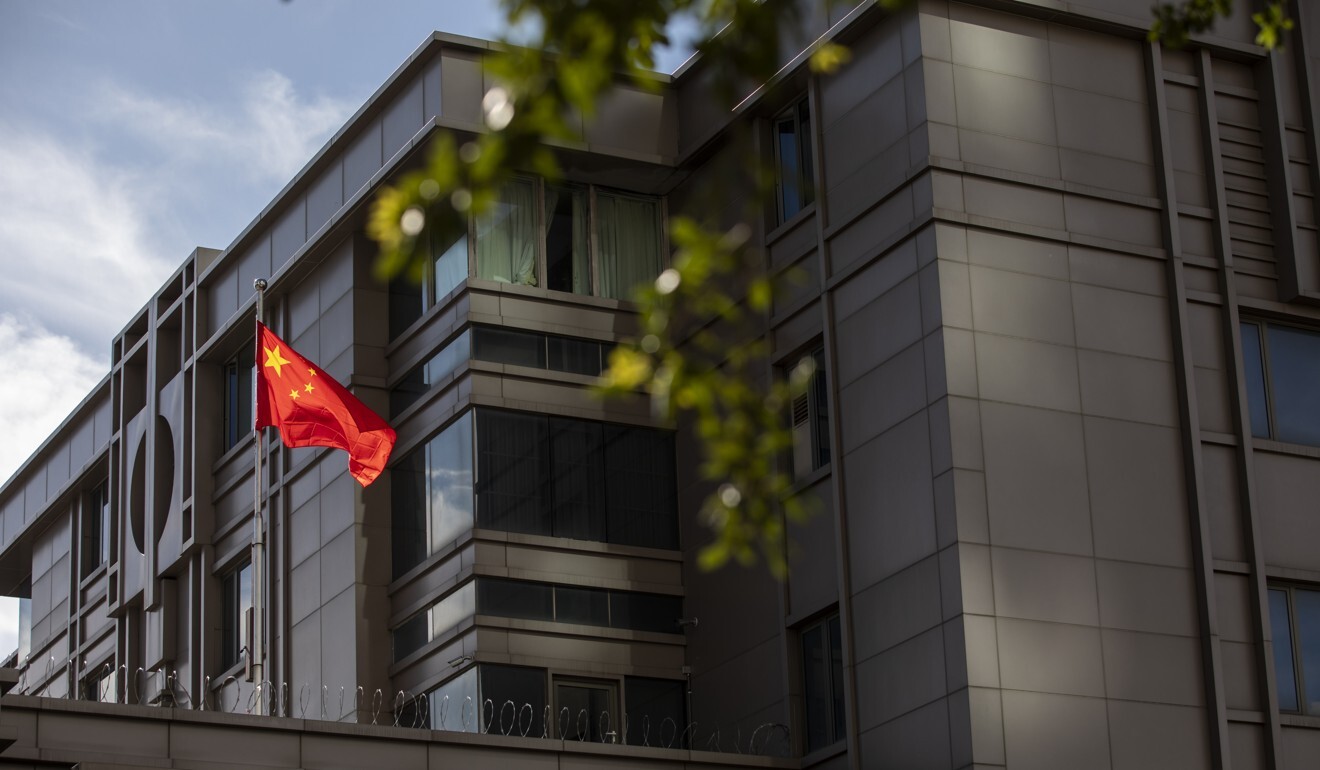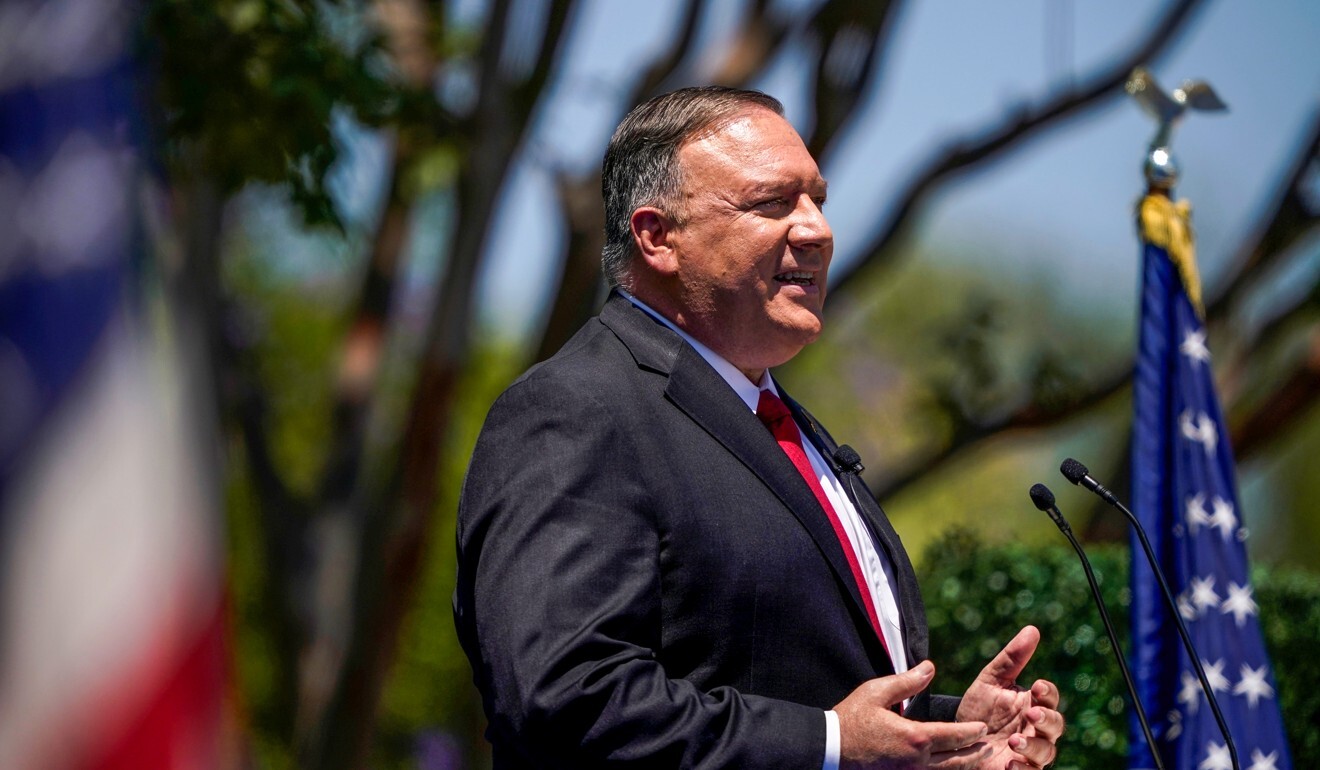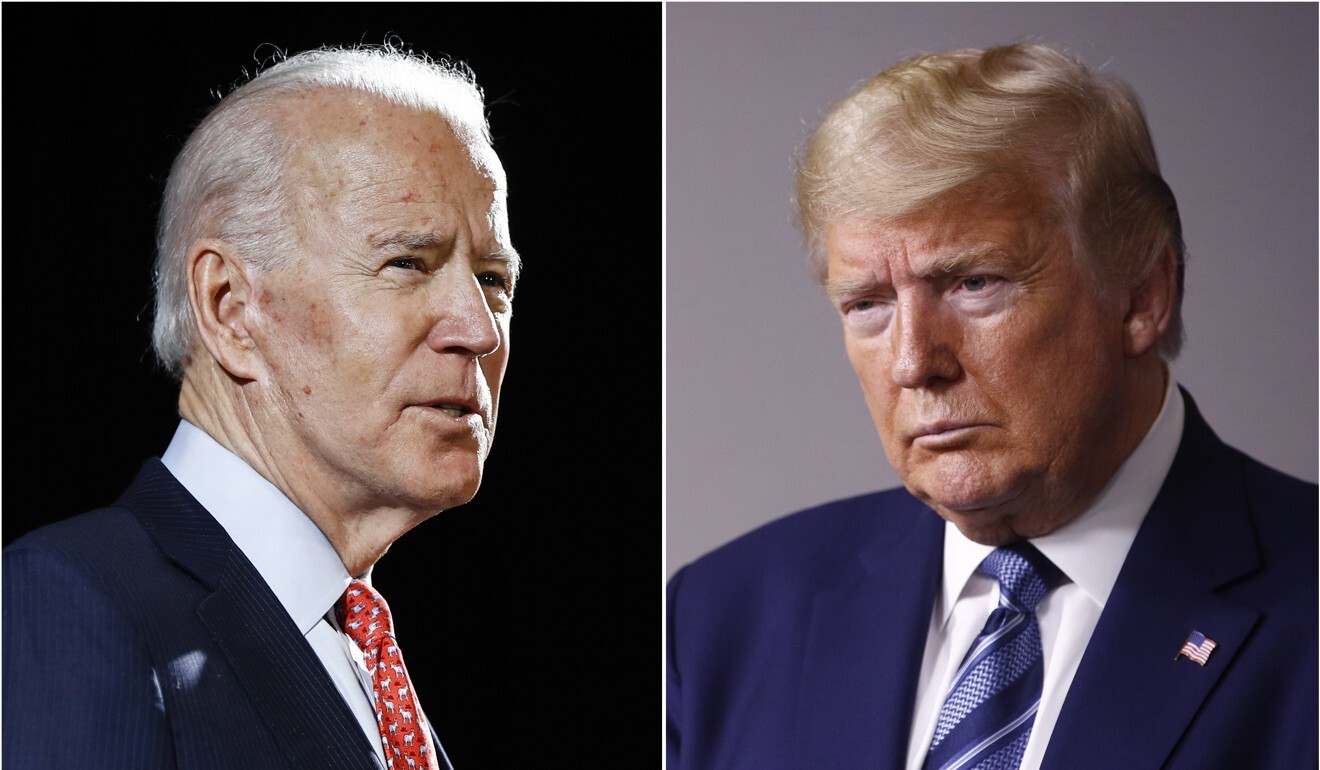
- Despite an apparent tit-for-tat dispute, China has consistently pulled punches when retaliating against actions from Washington
- The recent Chengdu-Houston consulate dispute is emblematic of the current state of the relationship.
Beijing is attempting to straddle a fine line with Washington as it seeks to mollify domestic appetite for hardline policies without causing irrevocable damage to the relationship.
Analysts say that despite the “Wolf Warrior” attitude from Chinese diplomats, official rhetoric and online nationalists, Beijing has stopped short of overly provocative steps and has not, or cannot, retaliate with equal force to American diplomatic volleys.
Tensions flared last week when the US ordered China’s consulate in Houston to close within 72 hours over alleged espionage activities. Beijing reacted by closing the American consulate in Chengdu, rather than shuttering high-profile offices like the one in Wuhan that was temporarily closed during the pandemic or more significant US consulates in Shanghai or Hong Kong.
 The Chinese consulate in Houston, Texas was ordered to close after the US government accused it of being a centre for spying. Photo: Bloomberg
The Chinese consulate in Houston, Texas was ordered to close after the US government accused it of being a centre for spying. Photo: BloombergDespite framing the closure in Chengdu as “necessary”, “appropriate” and “reciprocal” – and allowing for a live stream of the event to be viewed by millions – it highlighted Beijing’s balancing act in trying to please its domestic audience without pushing bilateral relations to the brink.
“Basically, it intended to show that China stands firm but does not want to escalate the situation,” said Zhang Baohui, a political science professor at Lingnan University in Hong Kong. “China’s overall approach, as a rising power, is how not to move the US towards a full-fledged cold war.”
Tensions between China and the US began to simmer when, in mid-2018, Washington in a trade war that continues to this day. Although US President Donald Trump has dismissed further trade talks with China, Beijing maintained it was still committed to the “phase one” trade deal the two sides signed in January.Relations have only worsened as the major powers clashed over technological competition, corporate espionage, the coronavirus pandemic and Beijing’s actions in Hong Kong, Xinjiang, Taiwan, and the South China Sea.
Last Thursday, when US Secretary of State Mike Pompeo urged democratic-leaning Chinese citizens to more aggressively “induce change” from the Chinese Communist Party, Foreign Minister Wang Yi was busy
with Germany.
Foreign ministry spokeswoman Hua Chunying said the speech showed Pompeo was “launching a new crusade against China in a globalised world” and urged the world to “step forward to prevent him from doing the world more harm”.
In early July, Wang sent out a public call for reconciliation and dialogue “as long as the US is willing”. But just over a week later, he said the US had “” and said the Trump administration’s “America First” policy had induced bullying and egoism.Cui Lei, an associate research fellow at the China Institute of International Studies in Beijing, said the party was still seeking to ease the situation, as had happened after previous moments of heightened tensions; particularly after the US bombed the Chinese embassy in Belgrade in 1999 and in 2001 when a US aircraft and Chinese fighter jet collided near Hainan.
“Beijing’s strategy is both to maintain stability, express goodwill and to preserve, at least on the surface, a sense that they will not give in,” Cui, a former diplomat, said. “As long as the US does not want to go to war, there is still room for negotiations.”
When the US sanctioned senior Chinese officials in July over Beijing’s repression in Xinjiang, the most prominent being Politburo member and Xinjiang party secretary Chen Quanguo, China responded by sanctioning lawmakers Marco Rubio, Ted Cruz, Chris Smith and the relatively unknown official Sam Brownback, the US ambassador at large for international religious freedom.
 US Secretary of State Mike Pompeo said Chinese citizens should work to “induce change” in China. Photo: ReutersAlso in July, Beijing reacted to the to Taiwan by sanctioning Lockheed Martin, a move of little consequence because the US weapons supplier has limited business interests in China.
US Secretary of State Mike Pompeo said Chinese citizens should work to “induce change” in China. Photo: ReutersAlso in July, Beijing reacted to the to Taiwan by sanctioning Lockheed Martin, a move of little consequence because the US weapons supplier has limited business interests in China.Shi Yinhong, a government adviser and US specialist at Renmin University in Beijing, said China had largely avoided equal reciprocation to US actions in recent years.
“China has less in its toolbox to retaliate with, compared to sanctions that the US and its closest allies, including the UK and Australia, could use,” he said. “Regular use of tit-for-tat could also give Trump exactly what he wants, and further isolate China internationally. And it would get the domestic public used to a strong response and further stimulate the appetite for US hawks in China.”
It is difficult to gauge domestic public sentiment in China because of tight censorship and fears of expressing positions in contrast to the official political line.
On China’s highly regulated social media platforms, state media coverage of the US-China row has spurred more nationalistic, anti-American sentiments. This could put pressure on the leadership to not appear weak against perceived US grievances.
Zhu Feng, an international relations professor at Nanjing University, said there was a “wide spectrum of public opinions” but that they may not necessarily influence Beijing decision-making.
“For domestic purposes, China did try to avoid looking weak with the decision in Chengdu and as part of its ‘Wolf Warrior diplomacy’, but I think China has been clear in trying to avoid the new cold war the US now wants to impose on China,” he said.
 Some analysts are hopeful that tensions between the US and China will cool after the election in America. Photo: AP
Some analysts are hopeful that tensions between the US and China will cool after the election in America. Photo: APSome have also suggested that tensions between the powers could ease after the US presidential election in November, citing that Trump has sought to blame Beijing for American woes from the coronavirus pandemic. The US makes up more than one-quarter of the nearly 16.5 million cases globally.
But American lawmakers have coalesced around a bipartisan consensus pushing for a more aggressive approach to counter Beijing’s increasing assertiveness.
Shen Dingli, a Shanghai-based expert on China-US relations, said every action from either country would guarantee a reaction in the current atmosphere, with no end to the downward spiral on the horizon.
“This has become an infinite loop of action and reaction, and every step of it is taking Sino-US ties closer to the edge of a breaking in ties,” he said. “As long as neither country says, ‘We will not make any moves after being attacked’, then this loop obviously will not stop.”


No comments:
Post a Comment